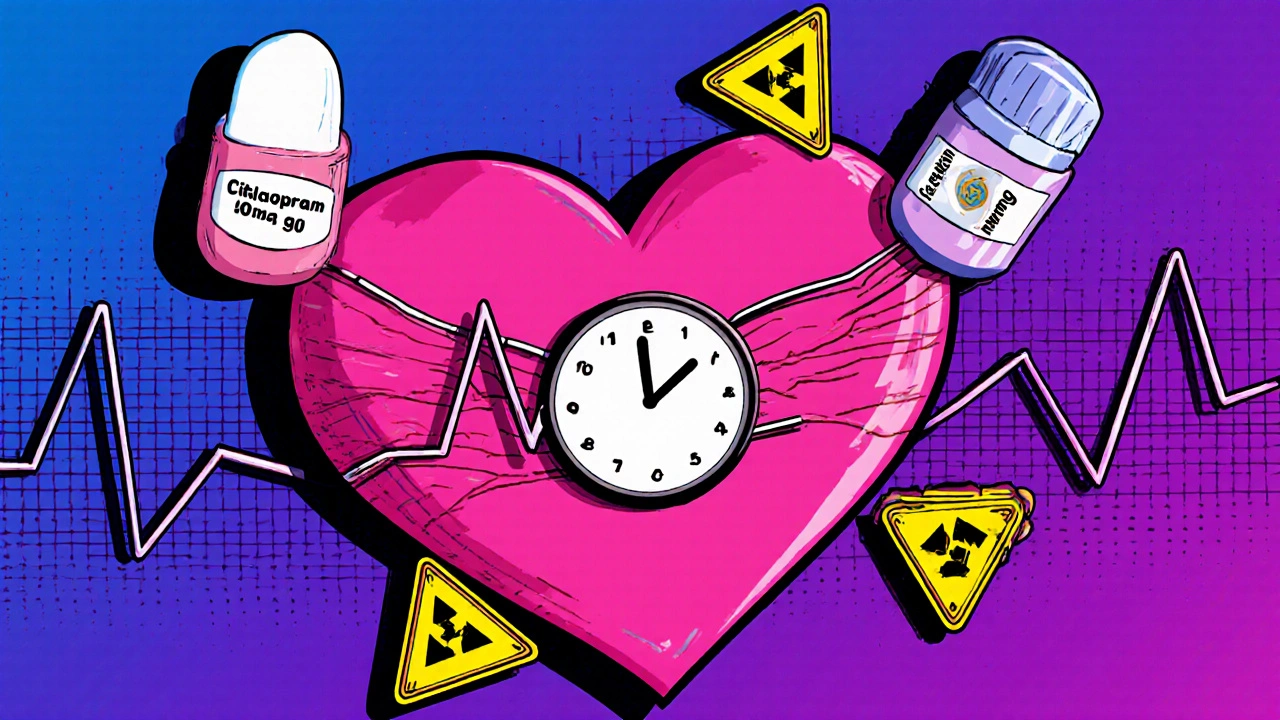Citalopram QT Prolongation: Risks, Signs, and What You Need to Know
When you take citalopram, a common SSRI antidepressant used to treat depression and anxiety. Also known as Celexa, it helps many people feel better—but it can also affect your heart in ways most don’t expect. One of those risks is QT prolongation, a change in the heart’s electrical cycle that can lead to dangerous irregular heartbeats. This isn’t just a footnote in the prescribing info—it’s a real, measurable danger, especially at higher doses or if you have other health issues.
QT prolongation doesn’t always cause symptoms, but when it does, you might feel dizzy, faint, or notice your heart racing or skipping beats. It’s not something you can see in the mirror or feel with your hand—it shows up on an ECG. Doctors check for it, especially if you’re on more than 40 mg of citalopram daily, have a history of heart problems, or are taking other meds that also affect the heart rhythm. Antidepressant safety, especially with SSRIs like citalopram, requires watching for these hidden cardiac effects. People over 65, those with low potassium or magnesium, or those using diuretics or other QT-prolonging drugs are at higher risk. The FDA warns against doses above 40 mg per day for this reason.
It’s not about avoiding citalopram altogether—it’s about using it wisely. Many people take it safely for years without issues. But if you’ve been on it for a while and start feeling off, or if your doctor adds another medication, it’s worth asking: Could this be affecting my heart? Simple blood tests for electrolytes, a quick ECG, and reviewing your full med list can catch problems early. Cardiac arrhythmia, the serious rhythm disturbance that QT prolongation can trigger. isn’t something to wait on. If you’re on citalopram, know your numbers, know your risks, and don’t assume it’s "just an antidepressant."
Below, you’ll find real-world insights from posts that dig into medication safety, drug interactions, and how common prescriptions can have hidden effects on the body. These aren’t theoretical warnings—they’re based on clinical reports, patient experiences, and what doctors actually see in practice. Whether you’re taking citalopram, considering it, or just want to understand how antidepressants interact with your heart, the information here will help you ask the right questions and stay safe.
Citalopram and Escitalopram: QT Prolongation Risks and Safe Dose Limits
Citalopram and escitalopram can prolong the QT interval, raising heart rhythm risks. Learn the safe dose limits, who's most at risk, and how these SSRIs compare to other antidepressants for cardiac safety.
